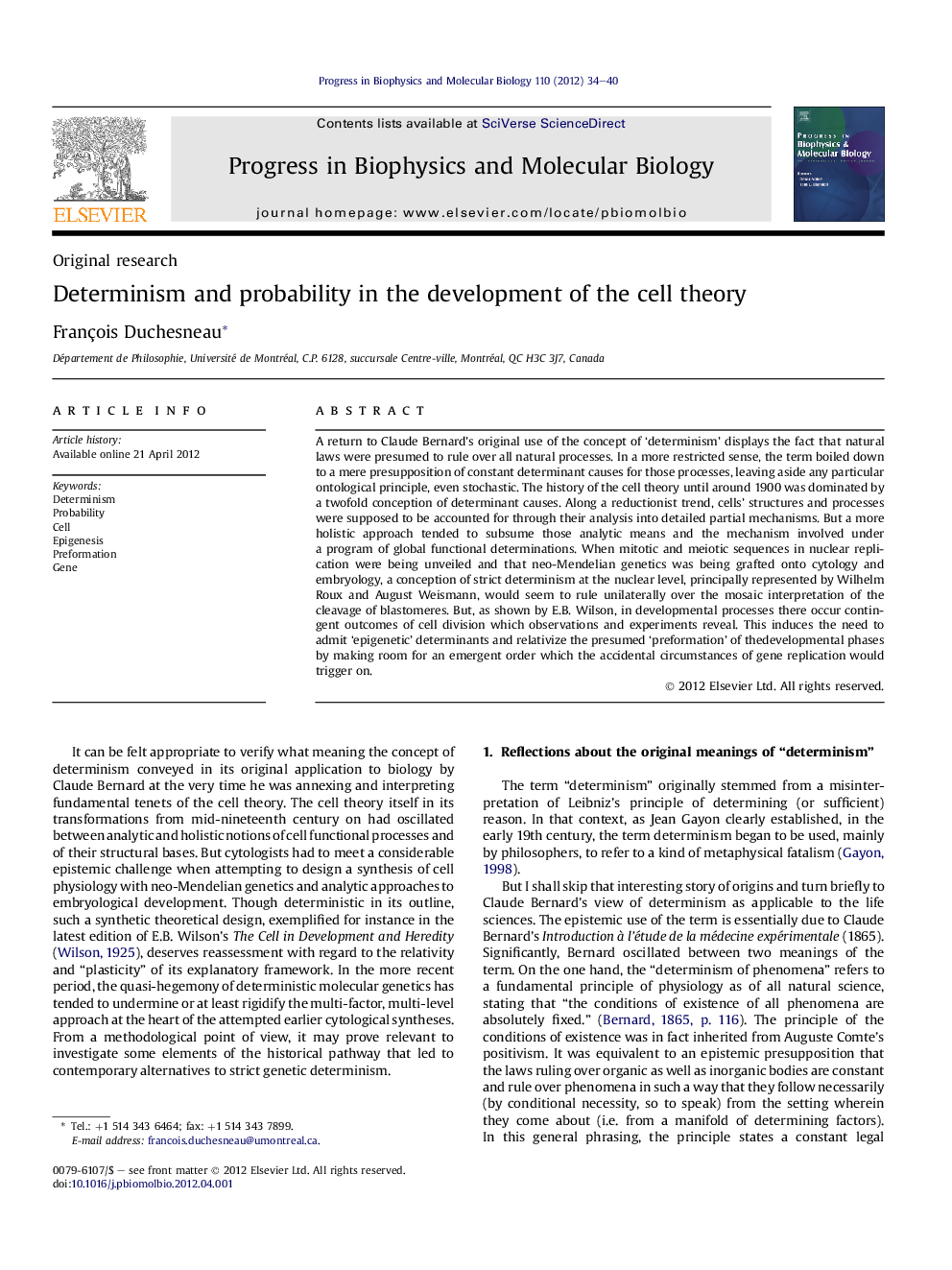| Article ID | Journal | Published Year | Pages | File Type |
|---|---|---|---|---|
| 10883585 | Progress in Biophysics and Molecular Biology | 2012 | 7 Pages |
Abstract
A return to Claude Bernard's original use of the concept of 'determinism' displays the fact that natural laws were presumed to rule over all natural processes. In a more restricted sense, the term boiled down to a mere presupposition of constant determinant causes for those processes, leaving aside any particular ontological principle, even stochastic. The history of the cell theory until around 1900 was dominated by a twofold conception of determinant causes. Along a reductionist trend, cells' structures and processes were supposed to be accounted for through their analysis into detailed partial mechanisms. But a more holistic approach tended to subsume those analytic means and the mechanism involved under a program of global functional determinations. When mitotic and meiotic sequences in nuclear replication were being unveiled and that neo-Mendelian genetics was being grafted onto cytology and embryology, a conception of strict determinism at the nuclear level, principally represented by Wilhelm Roux and August Weismann, would seem to rule unilaterally over the mosaic interpretation of the cleavage of blastomeres. But, as shown by E.B. Wilson, in developmental processes there occur contingent outcomes of cell division which observations and experiments reveal. This induces the need to admit 'epigenetic' determinants and relativize the presumed 'preformation' of thedevelopmental phases by making room for an emergent order which the accidental circumstances of gene replication would trigger on.
Related Topics
Life Sciences
Biochemistry, Genetics and Molecular Biology
Biophysics
Authors
François Duchesneau,
